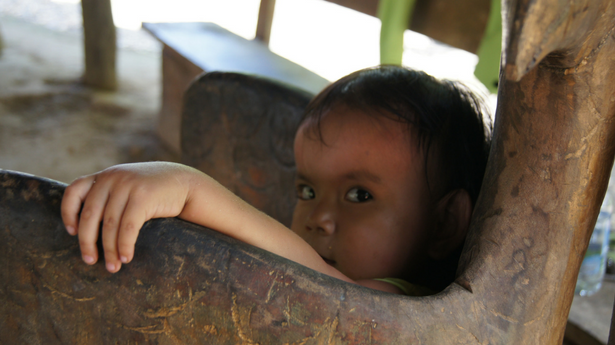
Some 1,200 indigenous people make up the Sarayaku community in the Ecuadorian Amazon. In 1996, the Ecuadorian government allowed a foreign company to begin prospecting their lands for oil. The government never consulted the local people.
Within a few years, the company had drilled hundreds of survey holes and packed them with some 3,000 pounds of explosives, which remain in the ground. With support form Global Greengrants Fund, the Sarayaku community launched a campaign against these violations in 2011. The community’s peaceful protests were met with a brutal response: People were attacked, and leaders were detained and tortured.
The community turned to international law in 2003. Global Greengrants Fund provided grants for legal support. In July 2012, the Inter-American Court on Human Rights handed down a historic ruling: The Ecuadorian government had violated the community’s right to free, prior, and informed consent. The decision is transformative: It establishes a standard of free, prior, and informed consent for indigenous peoples in the Americas when corporations seek to extract resources from their ecosystems.
“We are women and men, defenders of life and human rights, guardians of Mother Nature, eternal protectors of the living jungle, watchers of the planetary balance and a force behind a new paradigm of economic development that contributes to a harmonious life.
“We send our deep appreciation to you, who have been friends from the beginning and forever.
“We hope to have contributed a small grain of sand for the peoples that suffer the terrible consequences of the extractive policies of an economic system that violates their rights. One people, one society, one world is not built alone—it requires women and men of courage and dignity, willing to search for change and to push forward a true democracy and justice. In the name of the Kichwa People of Sarayaku.” —José Gualinga, President of Sarayaku
It is not enough to just protect what we have and restore what has been destroyed. We must transform the systems and ways of thinking that created these problems in the first place.
